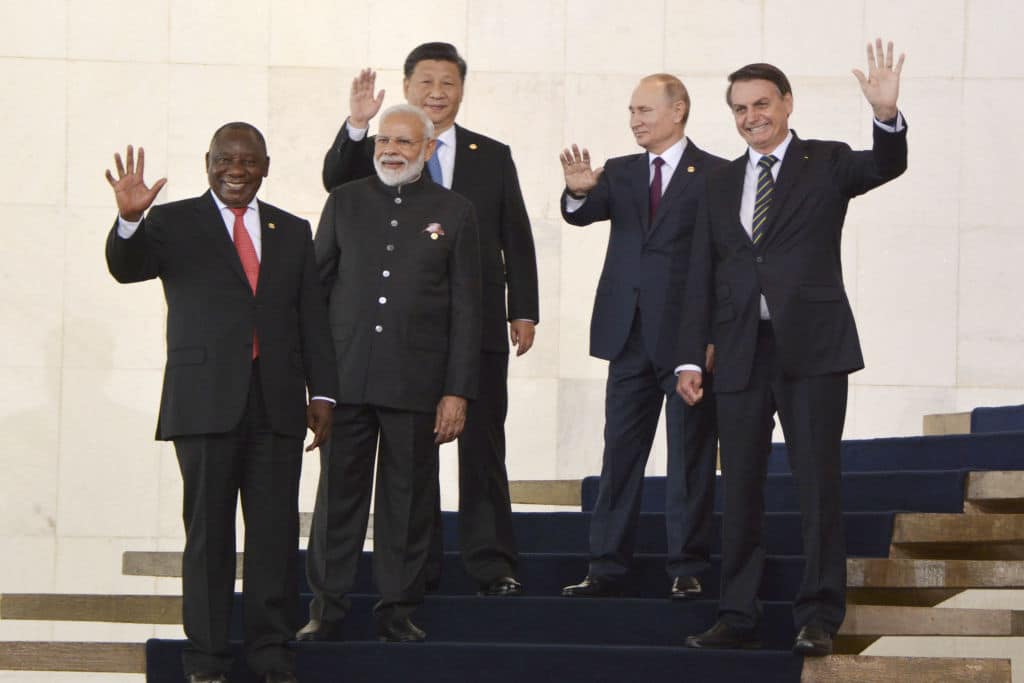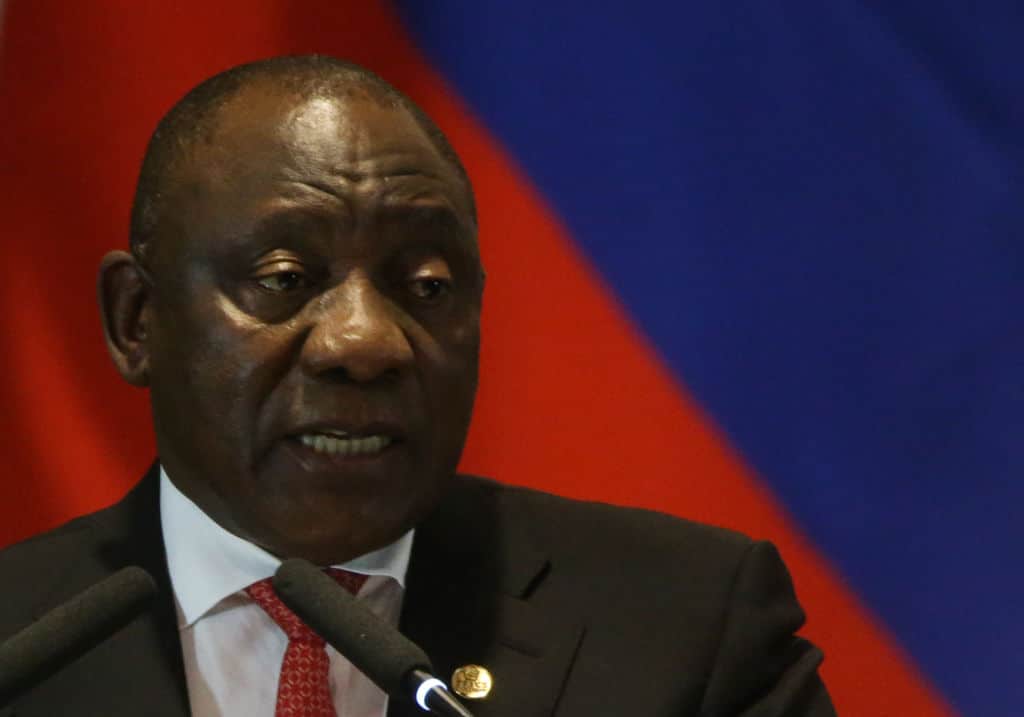South Africa grapples with a diplomatic quandary as it hosts this year’s BRICS summit amidst legal and trade tensions involving Russia, the US, and the International Criminal Court.
South Africa appears to be considering the possibility of transferring its role as the host of this year’s BRICS (Brazil, Russia, India, China and South Africa) summit. This effort emerges from a need to avoid enforcing an arrest warrant against the Russian Federation’s President Vladimir Putin.
The upcoming summit, slated for August, has thrown into relief South Africa’s non-aligned status in the con-flict between Russia and Ukraine. South African President Cyril Ramaphosa has been engaged in talks with China’s President Xi Jinping, showcasing the country’s active diplomacy in this delicate situation.
The historical relationship between South Africa and Russia is noteworthy in understanding the current sce-nario. The ruling party of South Africa, the African National Congress (ANC), has had long-standing ties with Russia due to Russia’s support of the ANC against the previous apartheid government. This shared history of resistance against Western hegemony, economic ties, and shared stances on global issues have deepened their bond over the years.
“I do think that there’s a certain puzzlement regarding South Africa’s position,” says Ivor Chipkin, analyst and Executive Director of the New South Institute, a policy think-tank based in Johannesburg, to FORBES AFRICA. “It places us in an awkward position economically… That said, Russia too is placing us in an awk-ward position by very boldly and very loudly proclaiming this relationship.”
Many South African signatories including the commander of the military’s ground forces as well as multiple senior government ministers have visited Russia in recent months.
As a signatory to the Rome Statute, South Africa is obligated to follow the rulings of the International Crimi-nal Court (ICC). The ICC has issued an arrest warrant for the Russian President, who is expected to attend the BRICS summit in Johannesburg. Should Putin attend, it is possible that opposition parties in South Af-rica might seek legal means to compel the South African government to arrest him, thereby further compli-cating the situation.
A failure to arrest President Putin would not only be a breach of the ICC mandate but could also strain the already tense relations between South Africa and the United States (US). Despite these complexities, the practicalities of enforcing such an arrest remain elusive, adding another layer to the diplomatic conundrum.
In response to this diplomatic quandary, the South African government has taken a flurry of diplomatic ac-tions in recent weeks. The ANC sent a delegation to China last week, reportedly to discuss a possible change of venue for the summit.
President Ramaphosa also hosted talks with President Xi Jinping. The discussions included an African-led peace proposal between Russia and Ukraine, as well as the upcoming BRICS summit.
The BRICS alliance is particularly beneficial to South Africa. It fosters further investment and economic co-operation and provides financing through the New Development Bank. However, maintaining good relations with the US is also a priority, given that the country benefits from tariff-free trade under the African Growth and Opportunity Act (AGOA), valued at more than $2.58 billion in annual revenue.

(From R) Brazilian President Jair Bolsonaro, Russian President Vladimir Putin, Chinese President Xi Jinping, Indian Prime Minister Narendra Modi and South African President Cyril Ramaphosa wave at the press corps during the BRICS summit in Brasilia on Nov. 14, 2019.
(Photo by Kyodo News via Getty Images)
However, this agreement is under pressure due to allegations of arms sales by South Africa to Russia after the secretive docking of the Russian Lady R vessel at a South African naval base last year. These allegations, if proven, could have serious domestic implications. For instance, should South Africa take any action that frustrates the US, it could suffer massive financial losses if AGOA is overturned, or if the Rand value drops significantly.
“South Africa’s position here is not clear to me at all,” continues Chipkin. “Other than a general suspicion of Western motives on the one hand… and then a historical relationship–not with Russia, but with the Soviet Union… It might well be that in order to placate some of the opposition to himself within the ANC, President Ramaphosa is making concessions on this front in order to stabilize and strengthen this position.”
South Africa’s Minister of Trade, Industry and Competition, as well as its Finance Minister, have expressed concern over the potential risk to the AGOA agreement. They have noted the damage these allegations could inflict on the South African economy. “It strengthens the position of South African exporters in the US mar-ket and, of course, helps create more jobs locally,” said Minister Ebrahim Patel during a press briefing ahead of his budget vote last month.
Discussing the prospect of President Putin attending the upcoming BRICS conference, US Ambassador Reu-ben Brigety noted South Africa’s obligations during a media briefing last month, stating that the US did not understand why “the government of South Africa will not publicly and fulsomely commit to the obligations that it has voluntarily taken upon itself”.
Looking ahead, South Africa finds itself at a crossroads. Its commitment to the principles of international justice as embodied by the ICC, its long-standing relationship with Russia, its membership in BRICS, and its trade ties with the US are all at play, with the decisions to be made in the weeks ahead likely to have far-reaching implications for both the country’s global standing and economy.
